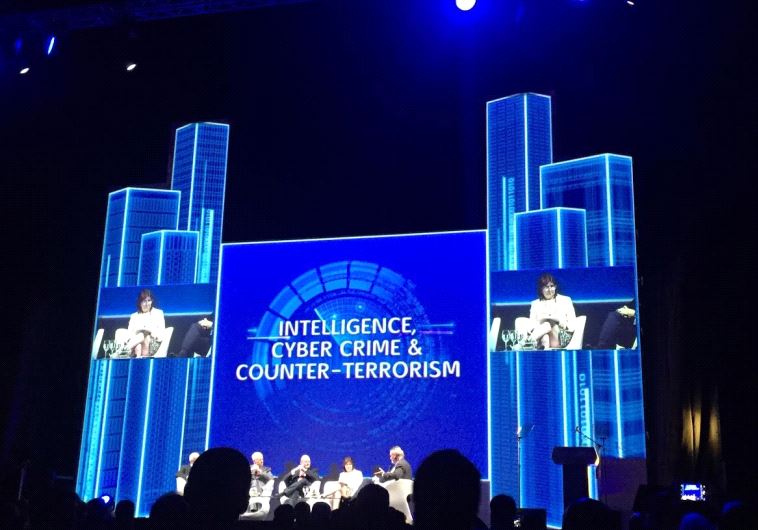Cyber concerns bring leaders from across globe to Tel Aviv
Thousands take part in Israel's 4th HLS and Cyber Conference where the role of social media in radicalization and terrorism was a top issue.
 Panel Discussion: Impact of Radicalization on Society(photo credit: ANNA AHRONHEIM)Updated:
Panel Discussion: Impact of Radicalization on Society(photo credit: ANNA AHRONHEIM)Updated: